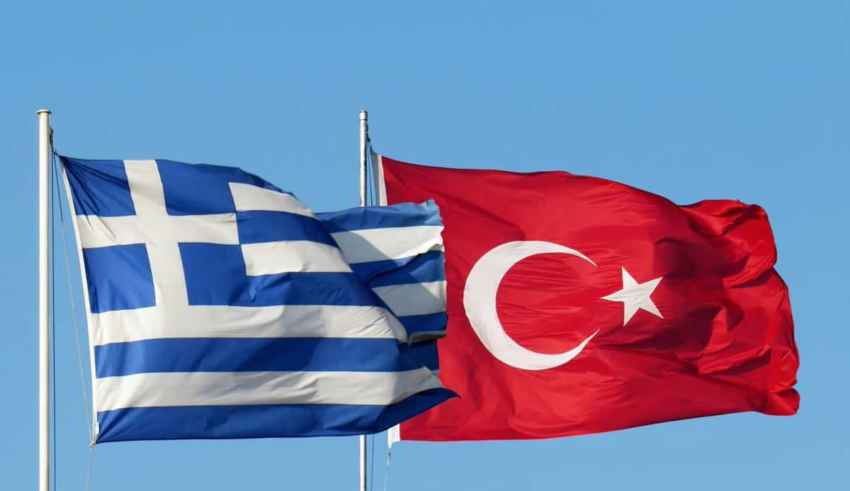
Today marks the 64th round of exploratory talks between Greece and Turkey, which will be held in Athens. In the wake of Thursday’s meeting in Brussels, where both Greek and Turkish Defence Ministers will be reconvening.[1]
However, a question worth addressing firstly is: What do these exploratory talks encompass and what do they aim to achieve? Consensus describes this negotiation phase as a dialogue mechanism, between the two neighbouring nations which have been running since the early 2000s. As per the subjects addressed, these vary depending on the tensions between the two, however, can be considered to fall under three main umbrellas:
- The demilitarisation of the Aegean Islands;
- Co-exploitation of wealth in the Aegean and Eastern Mediterranean;
- Conflict in the Republic of Cyprus.[2]
- According to diplomatic sources, a delegation under the leadership of deputy Foreign Minister Sedat Önal will fly to Athens for the realization of the 64th exploratory meeting seeking a solution to the problems stemming from the Eastern Mediterranean. The Greek team is led by retired Ambassador Pavlos Apostolidis.[3]
Reaching the 64th round of negotiations, hints that both have been facing a deadlock of immeasurable difficulty. On the other hand, it is worth mentioning that exploratory talks have been somewhat dormant for four years and just resumed early last year, during the Covid-19 Pandemic. During this quadrennial break, tensions between both, Greece and Turkey reached its peak. Ever since, the Greco-Turkish relations have been described as a diplomatic heightened fever. This round of Greco-Turkish dialogue mechanism is a bid to defuse tensions over the pile of issues that have been left behind.
Cards on the table, resolution of conflict through negotiations has never been a walk in the park, it requires adamant resilience from both sides and some common grounds, no matter how insignificant, these might function as the beginning of a compromised solution. In this specific case, every round of negotiations between the two results into a Chinese Whisper game. Every round, should in some shape or form guide the two neighbouring nations towards a warmer relationship, built upon common understanding. The reality, the “dialogue” uncovers further unresolved issues between the two stretching them further apart from a common target.
However, despite efforts, tension continues between the two countries as Ankara blames Athens for continued provocations in the Aegean Sea and inflammatory rhetoric followed by unwanted actions. The latest of such moves came from Greek Deputy Defence Minister Nicholas Hardalias, who paid visits to the islands nearest to the Turkish coasts with demilitarized status.
Turkish Foreign Minister Mevlüt Çavuşoğlu, in a strong reaction to Greek behaviour stressed the sovereignty of these islands could be challenged if Greece continues to violate 1923-dated Lausanne and 1947-dated Paris conventions which strictly ban the armament of certain islands close to Turkey.
Greece has complained about Çavuşoğlu’s statement by writing a letter to the U.N. Security Council, while an EU spokesman criticized the Turkish foreign minister’s statement. Greece has intensified its armament efforts in the past years and signed robust security deals with France and several governments within the region.
Turkish security sources slam the Greek deputy defence minister’s provocative visits to these islands, stressing the following “As two allied neighbors, we have multiple dialogue tools such as exploratory talks, confidence-building measures and NATO-deconfliction mechanism. We want to resolve the problems through these mechanisms. Our wish is that Turkish and Greek nations live in confidence, welfare and peace by fairly benefiting from the regional richness and that the Aegean Sea becomes a friendship sea between Turkey and Greece,” sources said.[4]
Might the 64th round be the lucky one? Hard to tell, some might argue it acts as an indicator of the efforts that both sides are willing to put towards voicing their concerns, but still far away from resolving the outstanding tensions. If this round does not bring both nations a step closer to a commonly accepted resolution plan, Greece and Turkey risk to find themselves locked into a tense and hostile relationship, making the notion of peace a utopic dream.
[1] https://www.ekathimerini.com/news/1177868/64th-round-of-exploratory-talks-on-feb-22/
[2] https://www.hurriyetdailynews.com/turkish-greek-officials-to-meet-to-discuss-positive-agenda-171660
[3] https://www.hurriyetdailynews.com/turkish-greek-aegean-talks-to-continue-despite-row-171503
[4] https://www.crisisgroup.org/europe-central-asia/western-europemediterranean/263-turkey-greece-maritime-brinkmanship-dialogue
By The European Institute for International Law and International Relations.















